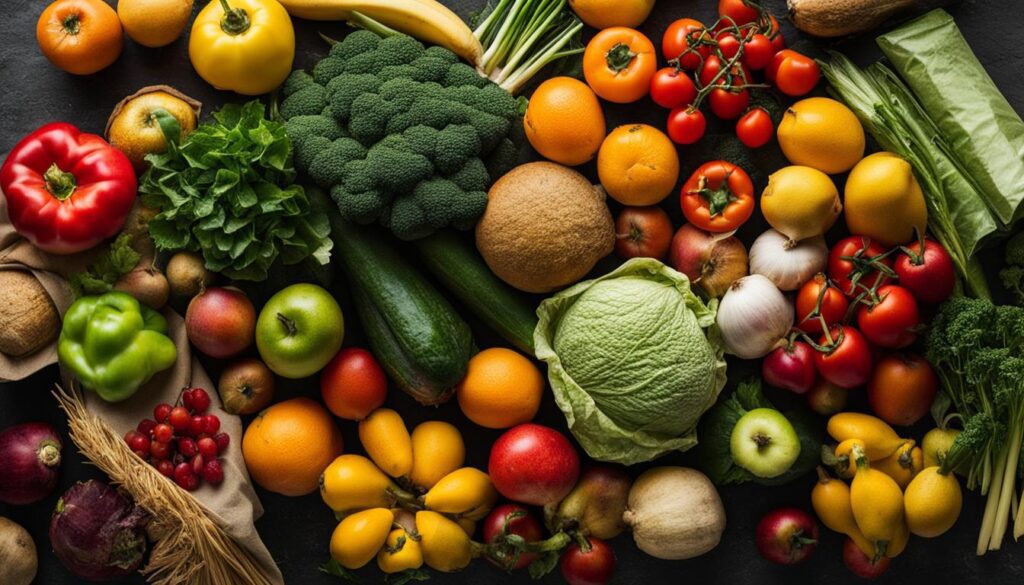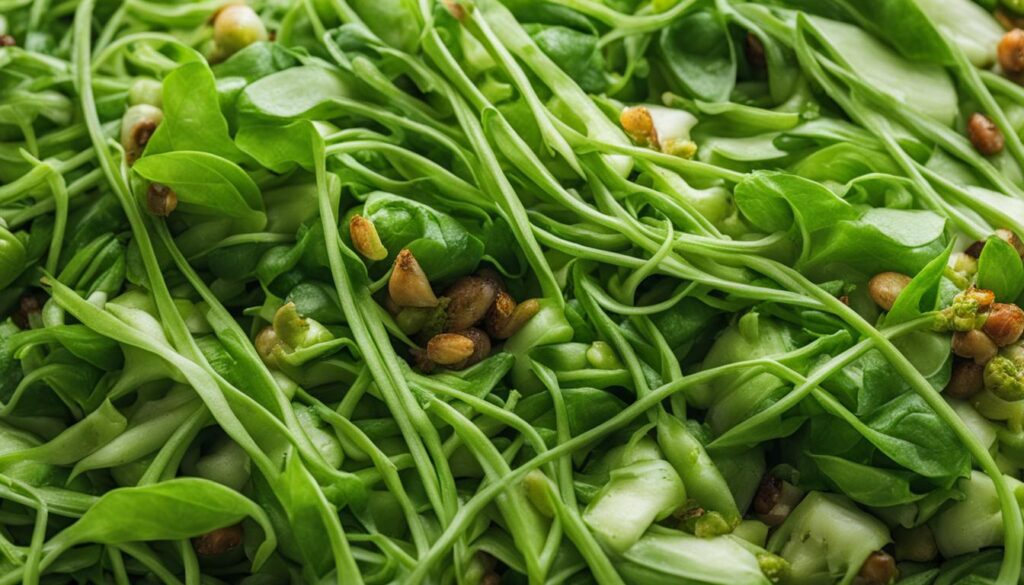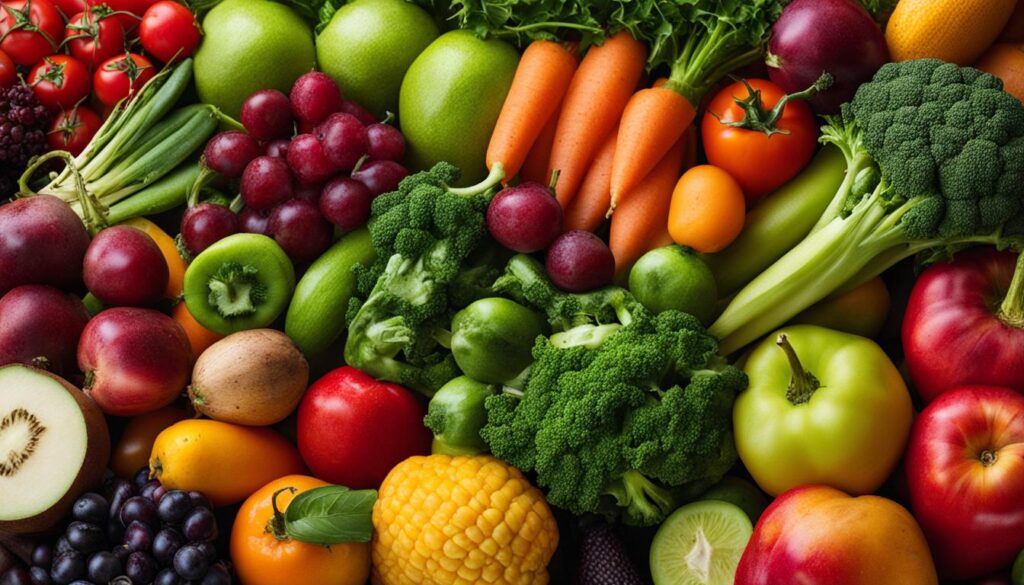Living an eco-friendly lifestyle is becoming increasingly important as we strive to reduce waste and protect the environment. One way to contribute to this effort is by incorporating BPI certified compostable products into our daily lives. In this section, we will explore the significance of BPI certification for compostable products, how to find them, and the proper use and disposal of these environmentally friendly alternatives.
Key Takeaways:
- Utilizing BPI certified compostable products promotes eco-friendly living.
- BPI certification ensures that compostable products meet ASTM standards.
- Compostable products require commercial composting facilities for proper breakdown.
- Look for the BPI Certification Mark when purchasing compostable products.
- Responsible disposal of compostable products is essential for a sustainable future.
The Importance of BPI Certification for Compostable Products
When it comes to choosing compostable products, ensuring that they are BPI Certified is of utmost importance. BPI Certification guarantees that these products have undergone rigorous testing and meet the necessary standards for compostability. Non-certified compostable products may contain harmful chemicals that can negatively impact the soil and the environment. To ensure that your compostable products are safe for composting, look for the BPI Certification Mark.
Compostable products that are BPI Certified can only be composted in commercial composting facilities. These facilities use more intense heat methods, which are necessary for the proper breakdown of compostable materials. Commercial composters can only accept compostable products that are BPI Certified, as these have been tested and verified to meet the required standards. By using BPI Certified compostable products, you can contribute to the creation of nutrient-rich compost that can be used in farming and agriculture.
“Using BPI Certified compostable products ensures that you are making an environmentally responsible choice. These products are designed to biodegrade in specific composting conditions, helping to reduce waste and protect the soil.”
In the absence of commercial composting facilities, it is recommended to responsibly dispose of BPI Certified compostable products in landfills instead of backyard compost bins. This ensures that these products do not end up in oceans or waterways, where they can harm marine life. It’s crucial to prioritize the proper disposal of compostable products and support the growth of commercial composting infrastructure.
Remember, when purchasing compostable products, always look for the BPI Certification Mark to ensure that you are making an eco-friendly choice. Supporting BPI Certified compostable products is a step towards a more sustainable future.

Finding BPI Certified Compostable Products
When it comes to purchasing compostable products, it is essential to look for the BPI Certification Mark. This mark indicates that the product has been certified by the Biodegradable Products Institute (BPI) and meets the stringent ASTM standards for compostable products in North America. By choosing BPI Certified compostable products, you can have confidence that these items have undergone rigorous testing and are safe for commercial composting.
There are several online platforms where you can find a wide range of BPI Certified compostable products. Websites like eco-productsstore.com, webstaurantstore.com, and amazon.com offer a variety of options to suit your needs. Additionally, the BPI website itself has a search bar where you can find all certified products and companies. This allows you to make informed choices and easily access environmentally-friendly alternatives.

Here are some steps you can follow to find BPI Certified compostable products:
- Visit reputable online platforms like eco-productsstore.com, webstaurantstore.com, or amazon.com.
- Use the search function on these websites and enter keywords such as “BPI Certified compostable products” or specific product categories like “compostable cutlery” or “compostable food containers”.
- Review the product descriptions and look for the BPI Certification Mark or references to compostability.
- If you prefer to support local businesses, visit nearby specialty stores or eco-friendly shops that may carry BPI Certified compostable products.
- Check the BPI website’s database of certified products and companies for a comprehensive list of options.
While compostable products can be a sustainable choice, it’s important to note that reusable serveware is the best option for the environment whenever possible. By reducing waste altogether, we can minimize the need for single-use items and make a positive impact on our planet.
| Pros of BPI Certified Compostable Products | Cons of BPI Certified Compostable Products |
|---|---|
| Contributes to waste diversion from landfills | Require specific composting conditions not available in backyard compost bins |
| Reduce dependence on non-renewable resources | May be more expensive compared to conventional products |
| Minimizes environmental impact | Limited availability in certain regions |
| Helps support the growth of the composting industry | May require education and awareness to ensure proper disposal |
Using BPI Certified Compostable Products
When it comes to sustainable composting, using BPI Certified compostable products is key. These products are designed to break down in specific biologically active environments and are an eco-friendly alternative to traditional single-use items. However, it’s important to use these products correctly to maximize their environmental benefits.
Compostable Packaging
One of the advantages of BPI Certified compostable products is their ability to handle liquids and grease. Compostable packaging, such as containers made from sugarcane or biodegradable PLA, is an excellent choice for food and beverage applications. These products are durable, leak-resistant, and can be safely composted in commercial facilities.
Proper Disposal
To ensure that BPI Certified compostable products are disposed of correctly, it’s essential to follow specific instructions for each type of product. These instructions may include placing them in designated commercial compost bins or collection containers. It’s important to note that these products should not be put in backyard compost bins due to the specific conditions required for proper composting.
Supporting Sustainable Practices
By using BPI Certified compostable products and disposing of them appropriately, you are contributing to a more sustainable future. Commercial composting facilities can effectively break down these products, turning them into nutrient-rich compost that can be used to enrich soil and support plant growth. In doing so, you are reducing waste sent to landfills and promoting a circular economy.

The Breakdown of Compostable Products
Understanding the breakdown process of compostable products is essential for their proper disposal and environmental impact. Various factors influence the breakdown time, including the material type, composting technology, and climate conditions. While BPI Certified compostable products are designed to biodegrade within a specific timeframe, the actual breakdown time can vary widely.
Compostable products that are BPI Certified are intended for composting in commercial facilities, where temperature, moisture, and other conditions can be carefully controlled. The Biodegradable Products Institute allows up to 180 days for biodegradation to occur. However, it is important to note that the breakdown time may be shorter or longer depending on the specific circumstances.
When disposing of compostable products, it is crucial not to put them in backyard compost bins as they require the specific conditions of commercial composting facilities. Backyard composting typically does not reach the necessary temperatures or maintain the required moisture levels for efficient breakdown. Therefore, it is recommended to dispose of compostable products in commercial compost bins to ensure they are broken down and turned into compost effectively.
| Factors Influencing Breakdown | Breakdown Time |
|---|---|
| Material Type | Varies depending on the specific material (e.g., PLA, sugarcane) |
| Composting Technology | Dependent on the process used by the composting facility (e.g., aerobic, anaerobic) |
| Climate Conditions | Temperature, moisture levels, and other environmental factors can impact breakdown time |
It is important to note that compostable products should only be disposed of in commercial composting facilities that accept BPI Certified products. These facilities have the necessary infrastructure and processes to effectively break down and transform compostable materials into nutrient-rich compost, which can then be used to enhance soil health and promote sustainable agriculture.
By utilizing the appropriate disposal methods for compostable products, we can contribute to reducing waste and minimizing the environmental impact of single-use items. Remember to look for the BPI Certification Mark when purchasing compostable products and dispose of them responsibly in commercial compost bins.
Disposal Options for Compostable Products
When it comes to disposing of compostable products, it is important to make environmentally responsible choices. BPI Certified compostable products should ideally be disposed of in commercial composting facilities. These facilities have the necessary infrastructure and controlled conditions to effectively break down and transform compostable materials into nutrient-rich compost.
Commercial composting provides the optimal environment for compostable products to biodegrade efficiently. These facilities utilize processes that involve high temperatures and the right balance of moisture, oxygen, and microorganisms to accelerate decomposition. By composting BPI Certified products in these facilities, you contribute to reducing waste and creating valuable compost that can nourish plants and enrich the soil.
If commercial composting is not available in your area, responsible disposal in the landfill is preferred over littering. However, it is crucial to note that compostable products do not break down as efficiently in landfills as they would in commercial composting facilities. In landfills, where organic matter decomposes slowly due to the lack of oxygen, compostable products may not fully biodegrade and can contribute to the generation of methane, a potent greenhouse gas.

Key Considerations for Disposal Options:
- Commercial Compost: Dispose of compostable products in commercial composting facilities whenever possible. These facilities follow specific processes to create optimal conditions for biodegradation.
- Backyard Compost: Avoid putting compostable products in backyard compost bins as they require the controlled conditions of commercial composting facilities for proper breakdown.
- Landfill Disposal: If commercial composting is not available, responsibly dispose of compostable products in the landfill. However, be aware that landfills hinder the natural breakdown process and can contribute to methane emissions.
By making conscious choices in the disposal of compostable products, you can contribute to a more sustainable waste management system and help protect the environment.
Conclusion
Eco-friendly living can be easily achieved by incorporating BPI Certified compostable products into your daily routines. These products are specifically designed to fully biodegrade in biologically active environments, ensuring a more sustainable future. With their BPI Certification, you can trust that these products meet the necessary standards for compostability.
By choosing compostable products and supporting commercial composting facilities, you play an active role in reducing waste and minimizing the environmental impact. When purchasing compostable products, always look for the BPI Certification Mark to ensure their authenticity and compliance with ASTM standards.
Remember, responsible disposal is crucial. Dispose of your compostable products in commercial compost bins whenever possible. If commercial composting is not available, it is essential to opt for responsible disposal in the landfill rather than littering. Let’s keep all plastics, including compostable products, out of our oceans and waterways.
FAQ
What is BPI Certification?
BPI Certification is a third-party verification of ASTM standards for compostable products in North America. It is the defining symbol of compostability and allows companies to make compostability claims on their products and packaging.
Why is BPI Certification important for compostable products?
BPI Certification ensures that compostable products meet ASTM standards and are safe for commercial composting. Commercial composters can only accept compostable products that are BPI Certified, as these products have been tested to meet the necessary standards and are safe for composting.
Where can I find BPI Certified compostable products?
Several websites, such as eco-productsstore.com, webstaurantstore.com, and amazon.com, offer BPI Certified compostable products. The BPI website also has a search bar where you can find all certified products and companies.
How should I use BPI Certified compostable products?
BPI Certified compostable products should be used with commercial composting facilities. These products should not be put in backyard compost bins. It is important to follow the specific instructions for each type of compostable product.
How long does it take for compostable products to break down?
The breakdown time of compostable products depends on various factors, but most BPI Certified compostable products are designed to be composted in commercial facilities within 180 days. However, the actual breakdown time can vary widely.
How should I dispose of compostable products?
BPI Certified compostable products should be disposed of in commercial composting facilities whenever possible. If commercial composting is not available, responsible disposal in the landfill is preferred over littering. It is essential to keep all plastics, including compostable products, out of oceans and waterways.